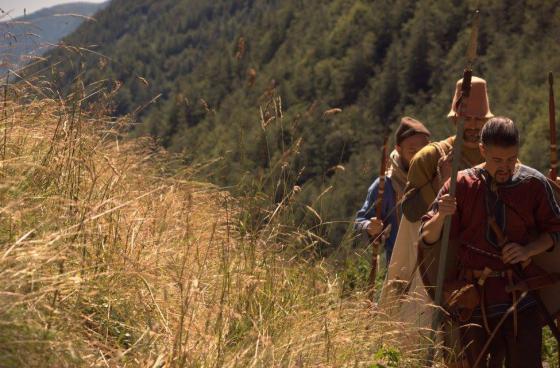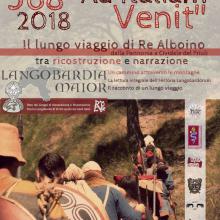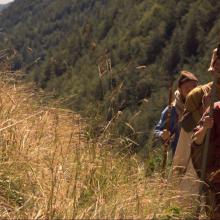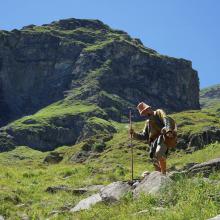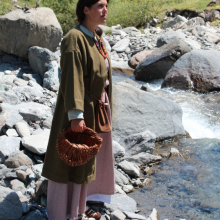“Then the Langobards, having left Pannonia, hastened to take possession of Italy with their wives and children and all their goods. (…) Therefore, when King Alboin with his whole army and a multitude of people of all kinds had come to the limits of Italy, he ascended a mountain, which stands forth in those places, and from there as far as he could see, he gazed upon a portion of Italy. (Therefore this mountain it is said, was called from that time on "King's Mountain.)" (Historia Langobardorum, II, 7-8).
1450 years ago, Longobards come to Italy: In order to celebrate this important anniversary, Langobardia Maior network is arranging a series of cultural events aiming to bring the audience closer to a fundamental period in Italian history.
Between March 29 and April 1, 2018, a historical march will be carried out repeating the last stage of the Langobard migration, starting from Slovenia and ending in Cividale del Friuli, the first Italian Dukedom.
The route has been established basing on historical information and some interpretations proposed by recent studies. Following these sources, some reenactors will retrace the journey wearing historical outfit. The equipment that will be used during the march is the result of a multi-year and articulated research, based both on written and material sources, and it has been then replicated in order to verify the formulated hypotheses and gather new information about.
This experience, in fact, aims to be an occasion of understanding and reflection on some particular issues, such as clothing, eating, and travel arrangements.
The prestigious setting of the Museo Cristiano e Tesoro del Duomo in Cividale del Friuli will welcome the arrival of the reconstructors, and will host the second phase of the event: the full reading of the Historia Langobardorum, the great chronicle of the Lombard people written by Paul The Deacon at the end of the eighth century.
The readathon will be introduced by Francesco Benozzo, professor of Romance Philology at the University of Bologna and nominee for the Nobel Prize in Literature for 2017, considered one of the most acclaimed contemporary interpreters of the Celtic harp.
In this context, a committee will proclaim the winners of the contest “Longobard Histories” a both graphic and literary competition dedicated to the Longobard Culture organized by Langobardia Maior among Italian Classical High schools and Art academies.
